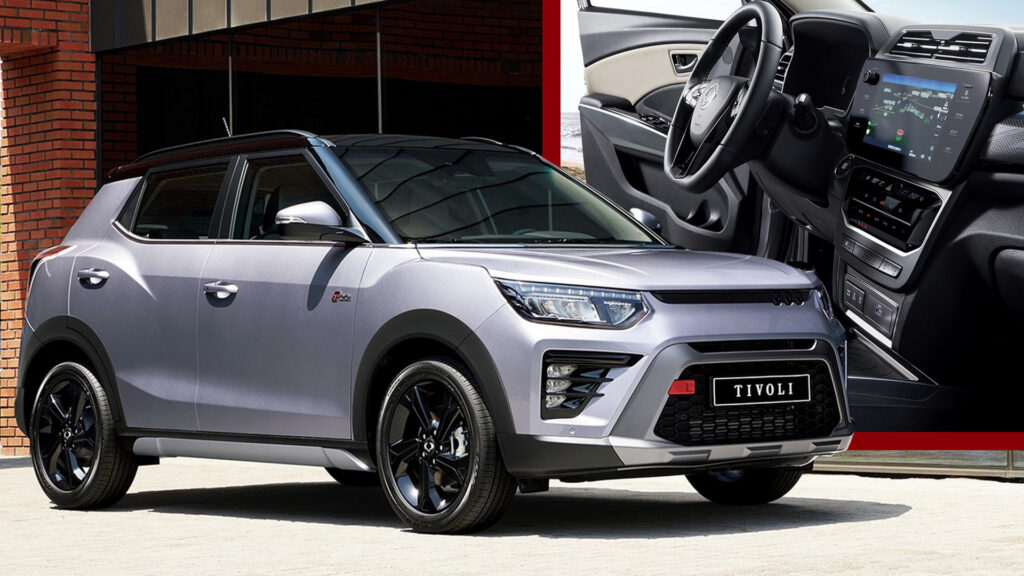KG Mobility is gradually updating the entire ex-SsangYong portfolio with new and facelifted models starting from the local market in Korea. Sometimes, changes can be as small as changing the emblems, but in Tivoli’s case, the rebranding came as part of a comprehensive facelift.
The SsangYong Tivoli has been around since 2015 with a subtle facelift in 2019. The 2023 update is more extensive, giving the subcompact SUV a redesigned face. This includes a smaller grille with asymmetrical Tivoli lettering and a much larger central bumper intake surrounded by an aluminum-style trim.
The light units and the rest of the bodywork remain largely unchanged, with the exception of the new 18-inch wheels, a set of revised side skirts, and a matching skid plate at the back. The SsangYong emblems are gone, with a KG Mobility badge on the tailgate being the only sight of the new brand name.
More: KG Mobility’s Rexton Sports Culmen Previews Updated Musso Pickup
The 10.25-inch digital instrument cluster and the 9-inch infotainment screen appear to be carried over from the outgoing model, combined with connected services by Infoconn. A closer look reveals the revised climate controls which are now touch-sensitive, alongside new leather-wrapped seats and different trim options (orange, two-tone gray, or black). Safety equipment includes 7 airbags and 14 ADAS. The longer Tivoli Air / Tivoli XLV variant also received the same upgrades.
The powertrain lineup includes two non-electrified petrol options. The entry-level naturally-aspirated 1.6-liter engine produces 124 hp (93 kW / 126 PS) and 155 Nm (114 lb-ft) of torque. The turbocharged 1.5-liter unit is more potent, producing 161 hp (120 kW / 163 PS) and 260 Nm (192 lb-ft) of torque. Both are exclusively mated to a six-speed automatic gearbox, sending power to the front axle or to all four wheels through the optional 4WD system.
The KG Mobility Tivoli is already available in Korea, starting at ₩18 million ($13,652). The company revealed that the cumulative sales of the Tivoli are close to 290,000 units since its debut in 2015.

































